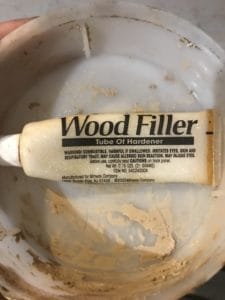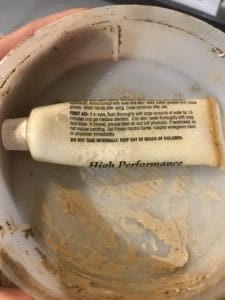Part 1: It’s Just…Bondo
Published June 2019
A Guide to Common Products with Uncommon Properties
By: Nick Dryden
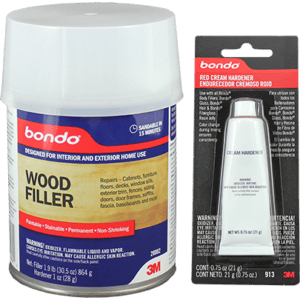
Part 1: It’s Just…Bondo
This is part 1 of our It’s Just… series on common products we see in industry. In this series we will be focusing on the chemicals found in these products, where you might find them in your facility, and how these products should be handled for disposal. Quick Disposal.
These products are all very common and can be safely used by following the manufacturer’s instructions. However, chemical products can quickly become unusable through improper storage. After products are no longer usable, most are subject to disposal regulations and should not be poured down the drain or thrown in the trash. Improper disposal can pollute the environment, harm wildlife, and/or harm human health.
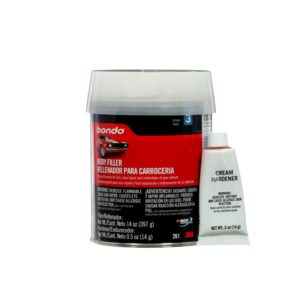
Body Filler: Where is it Commonly Found?
Bondo is the brand name of a common body filler found in automotive shops. It is used to make repairs to the body of cars and boats. Automotive body fillers are sold with two parts, the resin and a small tube of hardener. A similar product is sometimes sold as a wood filler and used in carpentry shops to repair imperfections in the wood.
Body Filler: What’s Makes it Dangerous?
The resin portion is typically a flammable mixture of chemicals that may be harmful if inhaled and harmful to aquatic life.
The tube of hardener typically contains benzoyl peroxide or methyl ethyl ketone peroxide. These peroxides are reactive with many other chemicals. Additionally, as the water evaporates from the tube the peroxides begin to crystallize. These crystal formations are unstable, shock-sensitive explosives and should not be handled.
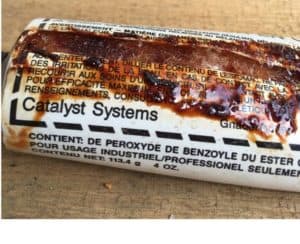
Body Filler: How to Properly Dispose of this Chemical?
Both the resin portion and the hardener are typically regulated as hazardous wastes by the US EPA and as hazardous materials by the US DOT. Due to the additional risk associated with the peroxides in the hardener tubes, it is very important to use or dispose of these chemicals prior to the manufacturer provided expiration date. Please contact our Hazardous Waste Team to put a safe plan in place for disposal of this chemical or any other chemicals you no longer want.
